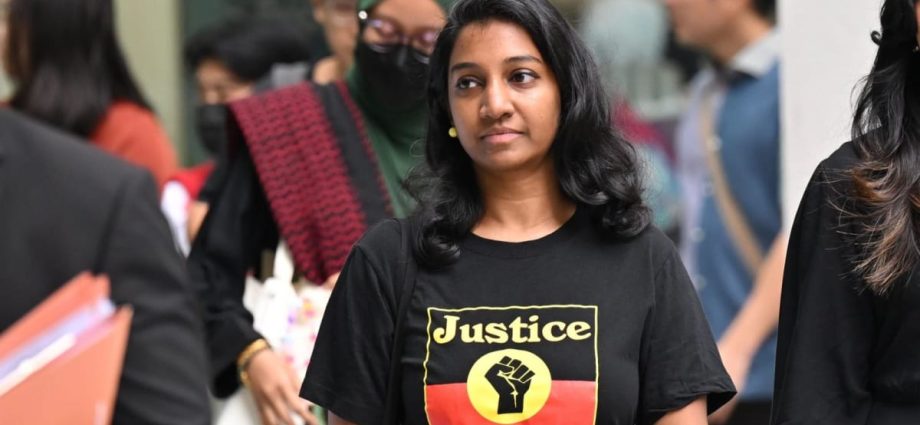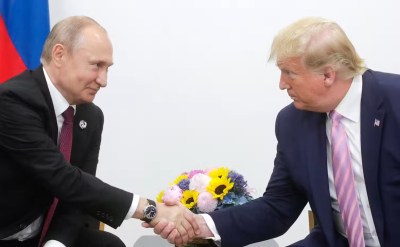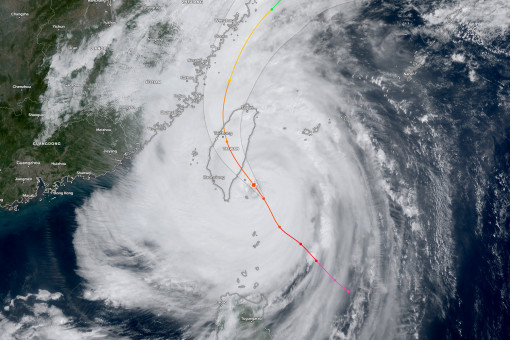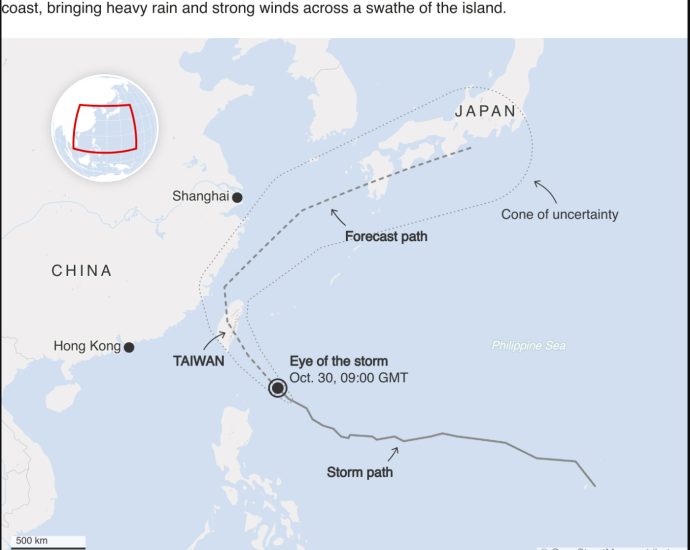Government does not target individuals, organisations for speaking out against death penalty: MHA
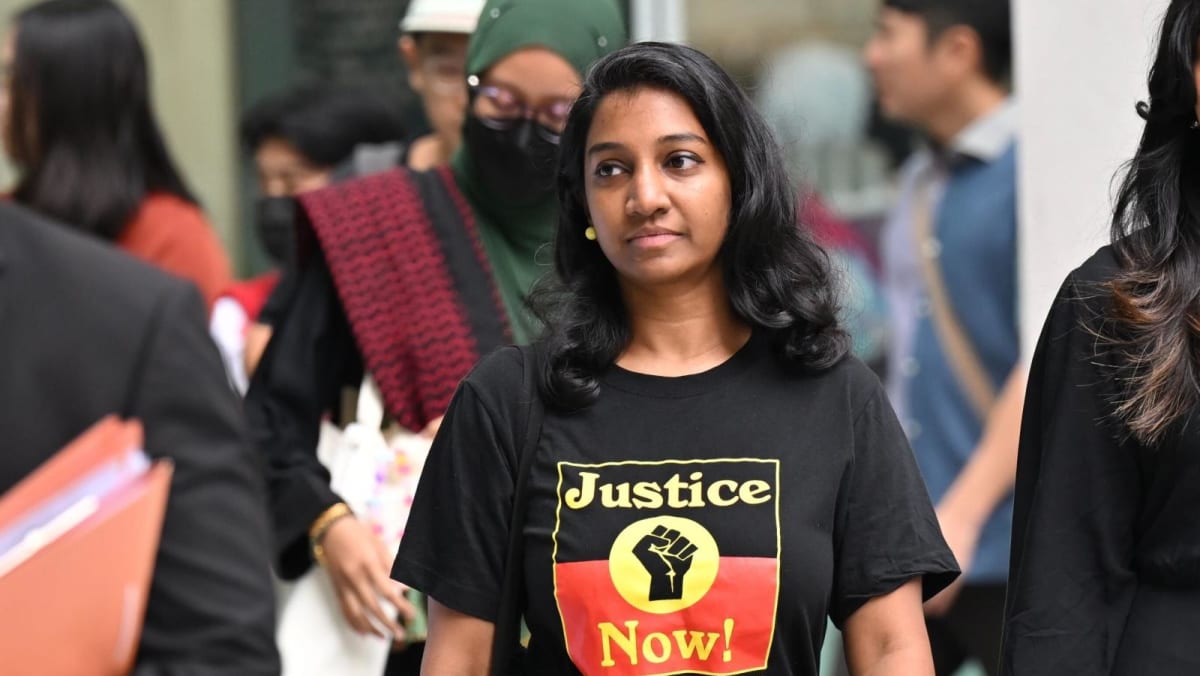
SINGAPORE: The Ministry of Home Affairs (MHA) said on Thursday (Oct 31) that it does not target individuals or organisations for speaking out against the death penalty.
But when false statements are made about government policy, which is a matter of significant public interest, it is important readers know that what they are reading is considered false by the government, it added.
The ministry was responding to CNA’s queries after activist Kokila Annamalai said she will not comply with a correction direction for her posts on Facebook and X on Oct 2 and Oct 3.
The posts had falsely stated that “the government schedules and stays executions arbitrarily and without regard for due legal process, and that the state does not bear the legal burden of proving a drug trafficking charge against the accused person”, said MHA.
MHA said it has already referred Ms Annamalai to the Protection from Online Falsehoods and Manipulation Act (POFMA) Office for investigations into her non-compliance.
Complying with a correction direction does not involve taking down original false statements, MHA explained. Instead, the government’s position is linked to the original statements through a correction notice. This is to alert readers and allow them to make their own judgments on truth and falsehoods.
If the government puts out an untenable position, the government’s credibility will suffer, it added. If the writer believes that she did not put out falsehoods, the POFMA Order can also be challenged in court.
“Ms Annamalai’s false statements relate to the criminal justice system. Her intent is to undermine public confidence in public institutions, in particular the criminal justice system. She is entitled to do so, based on facts., ” said MHA.
“But where she does so based on falsehoods, the government is entitled to a right of response.”
It added that the Transformative Justice Collective (TJC), an activist group that campaigns against the death penalty and which Ms Annamalai has been working with, has on past occasions communicated similar falsehoods.
The government is therefore entitled under law to require Ms Annamalai to indicate that her statements have been the subject of a POFMA Order.
MHA said that this “promotes transparency, and a debate based on facts”.
“What Ms Annamalai is saying is that she should be able to set out falsehoods, to mislead the public (and thereby be allowed to affect public interest) without the public being alerted to her falsehoods in an effective way,” added MHA.
“TJC (which put out the falsehoods originally) has complied with the POFMA Orders. Ms Annamalai, who reposted the TJC posts, has chosen not to despite repeated reminders. Neither has she sought to legally challenge the Order.”
It also said that contrary to what Ms Annamalai suggested, the POFMA Order issued to her does not stop her from sharing her views. This is because readers can still read her original posts, consider the government’s clarification alongside them, and come to their own conclusion.
“Ms Annamalai clearly prefers that her audience only be able to read her falsehoods,” said MHA.
How China can revive its bruised and dwindling billionaire class – Asia Times
Is the “smart” money still fleeing China? Whether it’s wise to leave Asia’s biggest economy is debatable. What’s not is that the mainland billionaire emigration trend continues and that their ranks have thinned by more than a third in just the last three years.
The latter dynamic, tracked by research group Hurun, spotlights how the fallout from the last few years of government crackdowns, slowing economic growth, volatile equities and property collapse is catching up with Xi Jinping’s policymakers and complicating their efforts to counter Wall Street worries that China has become “uninvestable.”
To be sure, the “avoid-China” vibe isn’t what it was, say, six months ago. As Nicholas Colas, co-founder of research firm DataTrek, notes, the recent “surprise announcement of aggressive fiscal and monetary policy action is spurring a reappraisal of the view” that Chinese equities are uninvestable.
“China’s leadership has finally acknowledged that the country’s economy needs much more monetary and fiscal stimulus if it is to achieve its growth potential over time,” Colas says.
Billionaire David Tepper has been making his own headlines by declaring it time to buy “everything” in China. And after “running around the world” in recent weeks, Kinger Lau, chief China equity strategist at Goldman Sachs, says that “for some investors who haven’t really looked at China over the past one to two years, certainly, the interest level has picked up a lot”
As Lau tells the South China Morning Post, “I’m not saying everyone is buying. But the level of interest has picked up a lot, very much consistent with the flows and positioning.” He’s among many who now see “upside” for Chinese equities.
Where this leaves China’s remaining billionaires in US dollar terms – Hurun says there are now 753 versus a peak of 1,185 in 2021 – is debatable. What’s clear, though, is that the stakes surrounding next week’s gathering of the standing committee of National People’s Congress are rising.
Rarely has there been a better opportunity for Xi’s inner circle to reassure the billionaire set at home and global funds abroad.
“The announcement of the NPC Standing Committee meeting for November 4-8 reflects Beijing’s strategic approach to the major economic policy U-turn underway,” says economist Diana Choyleva at Enodo Economics.
Choyleva noted that “by scheduling the meeting immediately after the US presidential election on November 5, the Chinese leadership has positioned itself to announce fiscal measures with full knowledge of the electoral outcome, enhancing its ability to manage market expectations and responses effectively.”
Next week’s confab will “allow Chinese policymakers to fine-tune their announcements and potentially adjust the scale or presentation of stimulus measures based on the new geopolitical context,” she says.
Choyleva notes that “a better-coordinated approach to policy announcements could actually enhance market stability. Investors should view the timing as a sign of careful planning rather than delay, particularly given the potential for more comprehensive and strategically calibrated announcements.”
Billionaires and global funds alike are craving a “well-thought-out approach” that “sets the stage for more impactful and sustainable market responses,” Choyleva says. “For investors, this timing and a more coordinated policymaking reduces uncertainty by ensuring that China’s fiscal response will be announced with full knowledge of the US political landscape, potentially leading to more stable and sustained market reactions rather than volatile short-term responses.”
The potential wildcard of a Donald Trump 2.0 presidency would be a game-changer for Asia, starting with a 60% tax on all Chinese goods that would upend Asian growth and supply chains.
Derek Holt, Bank of Nova Scotia’s head of capital markets economics, speaks for many when he warns that “Trump’s plans risk being highly destabilizing to world markets in a much more fractured world.”
Investors everywhere are bracing for a supersized US trade war in the event of a second Trump White House, including Europe. Germany’s recession is already casting a pall over European markets.
“In a worst-case scenario of a full-blown tariff war with retaliation, we estimate potential for a mid to high single-digit drag on European earnings-per-share growth,” says Barclays Plc strategist Emmanuel Cau. A “big chunk” of analysts’ worry more than 10% growth in earnings next year could disappear as trade tensions spike, he notes.
One worry is Trump’s desire to add fiscal stimulus via giant tax cuts into an economy that doesn’t need it. “The US economy doesn’t need pump-priming, it’s in excess demand and will remain there next year,” Holt notes. And while “the US needs to assert control over its borders, Trump’s extreme immigration policies would severely damage the US economy.”
Trump’s desire to weaken the US dollar also would increase inflation risks, complicating hopes the Federal Reserve might cut interest rates. Not that Vice President Kamala Harris has a great track record in global market circles, Holt notes. As a US senator in 2020, Harris was one of only a few lawmakers who voted against a revised US-Mexico-Canada trade agreement.
In Holt’s view, “it’s a matter of picking the one you think will be less damaging. As a professional economist, I have no doubt that this means voting against Donald Trump and the weak self-serving men behind him.”
Yet risks abound as the US national debt tops the US$35 trillion mark. “America’s fiscal position is living on borrowed time and the more damage that’s done now, the higher taxes will go in the future in a potentially more divided and more dangerous world,” Holt explains.
Reassuring China’s billionaires and overseas funds requires bold and transparent action by Xi’s inner circle.
Earlier this month, Beijing cut borrowing costs, slashed banks’ reserve requirement ratios, reduced mortgage rates and unveiled market-support tools to put a floor under share prices. Beijing is telegraphing bolder fiscal stimulus steps.
Team Xi also raised the loan quota for unfinished housing projects to 4 trillion yuan (US$562 billion), nearly double the previous amount. The bump was less than markets wanted, but pledges of more come has limited big negative market reactions.
The bigger issue, though, is repairing the balance sheets of giant property developers. Success in devising a mechanism to dispose of toxic assets could go a long way toward reassuring investors.
Xi’s inner circle has surely demonstrated it knows what’s needed to turn things around and reassure its capitalist class: a clear strategy to strengthen the finances of good-quality developers; incentivizing mergers and acquisitions; improving capital markets so that consumers stop seeing property as their only investment option; creating social safety nets so that households spend more and save less.
Beijing also must allay concerns that the tech crackdowns that began in late 2020 are over and done with.
Xi has left it to Premier Li Qiang to make the case for a more dynamic, competitive and predictable China. In January, Li said that “choosing investment in the Chinese market is not a risk, but an opportunity.”
He stressed that “investing in China will bring huge returns and a better future” and described CEOs on hand as “participants, witnesses, and beneficiaries of China’s reform and opening up.”
China, Li added, “stands ready to seriously look into and solve the difficulties and problems encountered by foreign enterprises” operating in the country. “We will take active steps to address reasonable concerns of the global business community,” Li said.
The bottom line, says Fred Hu, CEO of Primavera Capital Group, is that if China “really commits to rule of law and market reforms, I do think the confidence will slowly but surely come back, then the animal spirit will be rekindled.”
One reason the clock is ticking in Xi’s reform plans is that the 10-year mark of his “Made in China 2025” scheme is fast approaching.
When he took the reins of power in 2012, Xi promised to let market forces play a “decisive” role in Beijing’s decision-making. In May 2015, Xi unveiled his ambitious plan to morph China into a high-tech Mecca for semiconductors, renewable energy, electric vehicles, biotechnology, aerospace, artificial intelligence, robotics and green infrastructure.
A decade on, progress has been more sporadic than hoped. Team Xi has often proved better at treating the symptoms of China’s economic funk, not the underlying ailment.
It’s a lesson Japan taught the world: throwing money at an economy traumatized by plunging property values and deflationary pressures won’t work without supply-side moves to repair cracks in the economy.
Late last year, Xi introduced the buzz-phrase “new quality productive forces.” Though somewhat cryptic, Xi’s inner circle has been selling it as the answer to China’s economic future.
China wants to get its consumers to spend more and save less to keep growth near 5% year after year. That means continuing to raise incomes and building more robust social safety nets to encourage spending. It means creating deeper, trusted capital markets so the average Chinese can invest in stocks and bonds — not just real estate.
Beijing’s extreme focus on boosting consumption over the years has proved counterproductive, economists say. It leaves China susceptible to boom-and-bust cycles that require urgent attention at the expense of moving the economy upmarket. China’s heavy reliance on exports leaves the economy vulnerable to Trump-like antics.
There’s no better alternative to accelerating and broadening China’s evolution into a high-tech powerhouse, development experts say. And indications are, this is precisely the pivot Xi and Li are making as 2025 approaches.
At the NPC in March, Xi’s Communist Party said “it’s imperative to boost the endeavors to modernize the industrial system, and accelerate the development of new productive forces.” Billionaires skittish about China’s prospects couldn’t agree more. The days and weeks ahead offer Xi a ready opportunity to do just that.
Follow William Pesek on X at @WilliamPesek
Emma Lovell: Australian man cleared of murdering British woman

A man has been cleared of murdering a British woman during a break-in at her home in Australia.
Emma Lovell, 41, was stabbed after confronting two intruders in a suburb north of Brisbane on Boxing Day 2022.
A judge listened to three days of evidence earlier this month – and handed down his not guilty verdict on Thursday.
The other man admitted murder earlier this year, and was jailed for 14 years.
The judge-only trial heard it had been accepted the second defendant, who cannot legally be named as he was 17 at the time of the attack, did not stab anyone himself.
The matter in contention was whether he knew his co-accused – also then aged 17 – was carrying a knife.
He had earlier pleaded not guilty to murder.
Mother-of-two Mrs Lovell emigrated from Ipswich in Suffolk in 2011 with her daughters and her husband Lee, who was also injured in the attack.
The couple had confronted the intruders on the front lawn of their home, after being alerted by the sound of their dogs barking.
The second defendant, who cannot be named for legal reasons, had also pleaded not guilty to armed break-in as well as malicious acts and assault occasioning bodily harm on Mr Lovell, who was kicked and then stabbed in the back.
He was convicted of burglary and assault, but cleared of more serious charges including the alternative charge of manslaughter.
The prosecution had argued he was liable for Mrs Lovell’s murder as the pair intended to break into the home while armed and there was the potential they could endanger human life.
But the teenager’s defence team said there was no proof beyond reasonable doubt that he had knowledge of the knife.
The case was heard by a judge alone because the issue of youth crime was a key debate during last weekend’s state government elections – and it was feared this could prejudice a jury.
The Liberal National Party swept to power in Queensland, with a campaign that promised tougher sentences for juveniles under the slogan “adult crime, adult time”.
Justice Michael Copley remanded the man in custody, awaiting a pre-sentence report by early December.
Defence barrister Laura Reece told the court that her client may be eligible for release soon, given he had been on remand since the incident almost two years ago.
Man hit, killed by train in southern Thailand
Relatives say man may have been stressed due to medical condition

SURAT THANI – A 45-year-old man was found dead after being struck by the Trang-Bangkok express train in this southern province on Wednesday, a day before his housewarming ceremony.
The incident occurred at 7.40pm in Wieng Sa district after train No. 84 left Trang station at 5pm.
The dead man, identified as Pongsak Du-ngam, was found on the track, 5 kilometres before Ban Song station. His body parts were scattered around the area, according to emergency responders.
Police suspected a suicide, as a resident said they saw the man parking his motorcycle near the scene and walking into the railway area.
His relatives said that he might have been stressed by his medical condition, according to police.
The train was delayed by 45 minutes after the incident. The investigation is ongoing, police said.
Bangkok offers incentives for rubbish sorters
New regulation to be enforced in six months

Bangkok’s new garbage collection fee will provide big discounts for households that sort their rubbish before routine collection.
The Bangkok Council approved the new bill with a unanimous vote of 34-0, paving the way for it to become law after publication in the Royal Gazette.
Bangkok deputy governor Jakkapan Phiewngam announced that the draft bill is expected to be enforced in about six months, replacing the previous 2019 flat rate of 80 baht per household, which the current administration considers too high.
Under the new fee structure, households that sort their waste will pay just 20 baht per month, while those that do not will be charged 60 baht. To participate in the garbage-sorting initiative and receive the lower rate, residents must register via an application or at district cleaning departments.
Mr Jakkapan said that officials will visit registered households to verify compliance, although he did not provide details about the app.
Currently, out of over 2 million households in the city, only 50,000 separate their waste before collection, with disposal costs averaging 2,300 baht per tonne, according to the Bangkok Metropolitan Administration (BMA).
On foreign policy, it’s Trump disruption vs Harris engagement – Asia Times
According to conventional wisdom, US voters are largely motivated by domestic concerns and especially the economy.
But the upcoming presidential election may be somewhat of an outlier. In a September 2024 poll, foreign policy actually ranks quite high in voters’ concerns – with more Democrats and Republicans combined saying it was “very important” to their vote than, say, immigration and abortion.
As such, understanding where Republican presidential nominee Donald Trump and Democratic rival Kamala Harris stand on the significant international issues of the day is important. And we can do so by looking at the records of their respective administrations in the three regions they prioritized: the Indo-Pacific, Europe and the Middle East.
Donald Trump: disrupter-in-chief
In his 2017 inaugural address, Trump painted a dark picture of the US In his telling, his country was being taken advantage of by other nations, especially in trade and security, while neglecting domestic challenges.
To disrupt this, Trump promised an “America First” approach to guide his administration.
And in practice, his foreign policy certainly proved disruptive. He showed a clear willingness to buck traditions and undid some of former President Barack Obama’s signature policies, such as the Iran nuclear deal, which exchanged sanctions relief for restrictions on Tehran’s domestic nuclear program, and the Trans-Pacific Partnership trade agreement.
In so doing, he ruffled the feathers of allies and foes alike.
Trans-Atlantic relations were tense under Trump, especially because of his hostility toward NATO. After deriding the Atlantic alliance on the campaign trail, Trump stuck to the same tune while in office. He routinely insulted allies at high-level summits and allegedly came close to withdrawing from the alliance altogether in 2018.

While NATO did make inroads in bolstering its Eastern flank in that period, the alliance was primarily defined by internal turmoil and limited cohesion during Trump’s time in office. US relations with the European Union hardly fared better. In 2018, the US imposed steel and aluminum tariffs on the European Union, citing national security concerns.
Trump also broke with previous US presidents in his administration’s Asia policy. One of his first moves in 2017 was to abandon the Trans-Pacific Partnership, a trade deal negotiated by Obama. Trump’s late 2017 national security strategy also announced a major shift toward China, labeling it as a “strategic competitor” – implying a greater emphasis on containing China as opposed to cooperating with it.
This hawkish turn played out especially in the field of trade. Trump’s administration imposed four rounds of tariffs in 2018-19, affecting US$360 billion of Chinese goods. Beijing, of course, responded with tariffs of its own.
The two countries did sign a so-called phase-one deal in January 2020 that sought to lower the stakes of this trade war. But the Covid-19 pandemic nullified any chance of success, and relations soured further with each Trump utterance of the pandemic being a “Chinese virus.”
Trump showcased somewhat contradictory impulses toward the Middle East and other issues. He pushed for disengagement and to undo Obama’s major policies.
Besides withdrawing from the Paris Climate Accords in 2017, Trump abandoned the Iran nuclear deal in 2018. His administration also signed a deal to end the US presence in Afghanistan, and it withdrew forces from northern Syria.
But at the same time, Trump continued the bombing campaign against the Islamic State group in Syria and Iraq and authorized the killing of Iranian General Qasem Soleimani in 2020. The latter was consistent with a policy that aimed to pressure and isolate Iran economically and diplomatically.
The key example of diplomatic pressure came especially through the Abraham Accords, through which Trump helped facilitate the establishment of normal diplomatic ties between Israel, the UAE, Bahrain and Morocco.
Kamala Harris: alliance and engagement
Although not taking a driving role in foreign policy, Harris has been part of an administration that has committed the US to repairing alliances and engaging with the world.
This came across by undoing some major actions from the Trump administration. For example, the US quickly rejoined the Paris Climate Accords and overturned a decision to leave the World Health Organization.
But in other areas, the Biden administration has shown more continuity with Trump than many expected.
For instance, the US under Biden has not fundamentally deviated from strategic competition with China, even though the tactics have differed a little. The administration maintained Trump’s tariff approach, even adding its own targeted rounds against Beijing on electric vehicles.
Moreover, it cultivated different diplomatic platforms in the Indo-Pacific to act as a counterweight to China. This included the cultivation of the Quad dialogue with Australia, India and Japan, and the AUKUS deal with Australia and the UK, both of which attempted to further the Biden administration’s strategy of containing China’s influence by enlisting regional allies.
Finally, the Biden administration did maintain some channels of communication with China at the highest level as well, with Biden meeting Xi Jinping twice during his presidency.

The Biden administration’s Middle Eastern policy displayed significant continuity with Trump’s approach – at first.
While it turned out to be chaotic, the US completed the withdrawal of its troops from Afghanistan in summer 2021, as had been agreed under Trump. The Biden administration also embraced the format and goals of the Abraham Accords. It even tried to build on them, with the goal of fostering Israeli-Saudi diplomatic ties.
Of course, the attacks of October 7, 2023, in Israel completely changed the equation in the Middle East. Preventing the spiral of violence in the region has become an all-consuming task. Since then, Biden and Harris have tried, largely unsuccessfully, to balance support for Israel with mediation efforts to liberate the hostages and to ensure a cease-fire.
Trans-Atlantic relations, however, are an area where there were marked differences in the past four years. The tone of the Biden-Harris administration has been in sharp contrast with that of Trump, reaffirming frequently its clear commitment to NATO. And once Russia launched its illegal invasion in February 2022, the US placed itself at the forefront of supporting Ukraine.
Harris has suggested that she would continue Biden’s policy of providing Kyiv with extensive and continuous military support. In conjunction with allies, the White House of Biden and Harris also implemented a broad range of sanctions against Russia. But the US under Biden has not yet been willing to support Ukraine’s immediate entry into NATO.
What next?
Based on their records, what could we expect of a Trump or Harris presidency?
It’s unlikely either candidate will abandon strategic competition with China. But Trump is more likely to seriously escalate the trade war, promising extensive tariffs against Beijing. Trump’s commitment to defending Taiwan is also more ambiguous in comparison with Harris’ pledges.
US policy toward Europe will largely depend on the results of the election. Harris has frequently underlined her steadfast support for NATO, as well as for Ukraine. Trump, on the other hand, is showing signs that he is unwilling to further aid the regime in Kyiv.
And for the Middle East, it remains to be seen whether either Trump or Harris would be able to better shape events in the region.
Garret Martin is senior professorial lecturer, co-director Transatlantic Policy Center, American University School of International Service
This article is republished from The Conversation under a Creative Commons license. Read the original article.
K-pop group Seventeen to perform at the National Stadium in January 2025

There will be two presale sessions for the concert.
The first is for fans who are Carat Membership (Global) holders. This presale will be happening on Nov 13 from 10am to 11.59pm. Do note that you’ll first need to register for the presale on fan platform Weverse by Nov 4. Check out Live Nation’s website for more detailed instructions.
The second presale is for Live Nation members and it will take place on Nov 14 from 10am to 11.59pm.
General sales will then commence from 10am on Nov 15 via Ticketmaster.
Ticket prices start at S$168. VIP ticketholders will gain access to the soundcheck party and get an exclusive concert laminate, lanyard, pouch, and postcard. They’ll also enjoy a dedicated VIP merchandise booth lane.
Japan’s shock election shows how much inflation matters – Asia Times
Japan is remarkably safe, stable and comfortable, but it is in a dangerous part of the world, right next to China, North Korea and Russia. That makes it important to European allies and, above all, to its closest ally, the United States, as a liberal leader countering China and Russia in Asia.
Its stability cannot be taken for granted. Even Japanese voters can get angry and disillusioned, as they showed in a destabilizing shock result in Sunday’s general election. In the election, the country’s long-ruling conservative coalition lost its parliamentary majority, while the opposition parties showed new energy and coherence.
This wasn’t supposed to happen: A new prime minister, Shigeru Ishiba, who had made a career out of being a maverick outsider, called a snap election to exploit his apparent personal popularity.
Now, after he’s been in office for less than a month, Japanese commentators are comparing him insultingly to Britain’s Liz Truss, the Conservative who in 2022 famously survived for just 45 days as prime minister.
In truth, this is the sign of a healthy democracy, but it is an election result that holds lessons for other rich countries. It also leaves a key American security ally lacking a government just ahead of America’s own, rather momentous, election.
Japanese governments are normally formed within hours or, at most, days, but forming this one could take weeks or months.
The parliamentary arithmetic is difficult. In the 465-seat House of Representatives, a party or coalition needs 233 for a simple majority, but Ishiba’s Liberal Democratic Party fell in the election to just 191 seats while its coalition partner since 2012, Komeito, fell to 24, giving them a combined total of just 215, way down on the 279 the coalition held before the vote.
There are 12 independents, many of whom were kicked out of the LDP over financial scandals, but even if all those were readmitted the coalition would fall short.
Under Japanese law, a special session of parliament must be held within 30 days after an election to choose a new prime minister, and hence government, although the vote is expected to be scheduled sooner, on November 11. So Ishiba now has less than two weeks to persuade one of the other small parties to support him in that vote.
If he fails to win the vote, an opposition leader may be able to cobble together an interim government, though that too looks a tall order. Whatever happens on November 11, the likely outcome is a fresh set of elections in the first half of 2025. At the latest, this might coincide with elections scheduled for the House of Councillors, Japan’s less powerful upper house of parliament, by July at the latest.
For other rich countries, the big lesson of Japan’s political earthquake is that inflation matters more to voters than it does to many economists.
For more than three decades, Japanese have become used to stable or even falling prices, a deflationary trend that reflected economic stagnation but at least made things predictable for ordinary citizens. Their incomes were depressed, but prices were dependably low. Two years ago, following Vladimir Putin’s invasion of Ukraine, this changed.
To economists, the inflation Japan has experienced since 2022 has looked moderate – or even welcome given that, besides high energy prices and a falling currency, it also appeared to reflect a new corporate dynamism. Wages started to rise faster, too. But they were outpaced by prices. People felt poorer.
Most importantly, incomes did not move at all for a crucial block of long-time supporters of the conservative Liberal Democratic Party: Nearly 30% of the Japanese population is now over the age of 65, of whom most depend on pensions that have not kept pace with inflation.
This is a lesson from the 1970s that many had forgotten: Inflation is especially cruel to those on fixed incomes. Older voters are likelier to turn out to vote than younger ones, and they can get angry too.
This concern about inflation coincided with financial scandals in the Liberal Democratic Party. Not surprisingly, many voters concluded that the ruling party was doing little to help them while pocketing money for itself.
This conservative party has ruled Japan since 1955, except for two short periods in the early 1990s and 2009-12. In the past, it had shrugged off countless financial scandals. But this time, the blend of scandal and inflation has proved its undoing.
The question, as always after political earthquakes, is whether the old conservative government can now rebuild itself and repair its image or whether this will be the start of a more sustainable change.
The Liberal Democratic Party remains the largest party in parliament, but it now faces a difficult choice. It can try to soldier on under its current leader, for want of anything better. Or — probably once he has failed to form a stable government — it can get rid of him and consider switching to one of the more obvious “change” candidates who lost out to him in the LDP’s September leadership election:
- Sanae Takaichi, a right-winger who would offer herself as Japan’s first female prime minister, or
- Shinjiro Koizumi, son of the popular Junichiro Koizumi, who was prime minister from 2001-06, and who at just 43 years old, would stand to be Japan’s youngest postwar prime minister (the previous youngest was Shinzo Abe at 52 in 2006) and thus to represent a new generation.
This matters to Europe and America for two main reasons. The first is that Western efforts to deter China from invading Taiwan depend critically on Japan’s plans to double its defense spending by 2027.
The financing of that buildup will be harder without a stable government majority. There is a broad cross-party consensus that Japan’s national security requires such a defense build-up but there is no consensus about how to pay for it.
The second reason is that if Donald Trump is elected as US president on November 5 and carries out his promise to launch a trade war against Europe and Japan, Europe will need a dependable and resolute Japanese partner in resisting that American economic aggression, but it might not get one.
This commentator continues to bet that Kamala Harris will, in fact, win the US election, boosted by a strong turnout among her party’s voters and enough revulsion among traditional Republicans against Trump.
But the Japanese lesson must be borne in mind for it touches one of her main weaknesses by virtue of her having been vice-president for the past four years: Inflation matters a lot to voters.
Formerly editor-in-chief of The Economist, Bill Emmott is currently chairman of the Japan Society of the UK, the International Institute for Strategic Studies and the International Trade Institute. This article was originally published on his Substack, Bill Emmott’s Global View. It is republished here with kind permission.
Thai Airways cancels Taipei flights as typhoon strikes
Financial markets shut, offices and schools closed

Thai Airways International suspended three flights to and from Taipei on Thursday and one on Friday due to the approach of Typhoon Kong-rey.
Flights TG634 (Bangkok-Taipei), TG636 (Bangkok-Taipei) and TG635 (Taipei-Bangkok) were cancelled on Thursday, with flight TG637 (Taipei-Bangkok) suspended on Friday, the national carrier announced on its Facebook page.
“We apologise for any inconvenience this may cause. Passengers with bookings on these flights are advised to contact Thai Airways Customer Service at 662-356-1111 for assistance with rebooking or further information,” the airline stated.
In preparation for the typhoon, Taiwan has shut down, with all cities taking a day off, financial markets closed, and hundreds of flights cancelled.
The storm is expected to make landfall on the east coast around 2pm (1pm Thailand time), according to Taiwan’s Central Weather Administration.
At one point a super typhoon, Kong-rey slightly weakened overnight but remained powerful as the equivalent of a Category 4 hurricane bringing gusts over 250 kilometres per hour and heavy rainfall, according to Tropical Storm Risk.
Taiwan’s weather administration labelled the storm a “strong typhoon”, the most powerful storm level for Taiwan, adding it would be the biggest typhoon in size to hit the island since 1996.

Administration forecaster Gene Huang said that Kong-rey would head towards the Taiwan Strait as a much-weakened storm after hitting the east coast. He urged people across the island to stay indoors due to high winds.
“The size of the storm is very large, and the winds are high,” he said.
Warnings for destructive winds exceeding 160 km/h have been issued in the eastern county of Taitung, whose outlying Lanyu island recorded gusts above 260 kph before some of the wind-barometers there went offline.
Up to 1.2 metres of rainfall is expected in eastern Taiwan with destructive winds along coastal areas, according to the administration.
Taiwan’s Defence Ministry has put 36,000 troops on standby and evacuated 1,300 people from high-risk areas, the government said.
Taiwan Semiconductor Manufacturing Co, the world’s largest contract chipmaker and major supplier to companies like Apple and Nvidia, reported that it has activated routine typhoon alert preparation procedures at all its factories and construction sites.
“We do not expect significant impact to our operations,” it said in an emailed statement.
According to Taiwan’s Transport Ministry, 298 international flights had been cancelled, along with all domestic flights and 139 ferry services to and from outlying islands.
Taiwan’s high-speed railway, which connects major cities on its populated western plains, continued to operate with a reduced service.
The government has warned people to stay away from the mountains and the coast.
Kong-rey is forecast to graze China along the coast of Fujian province on Friday morning.
Subtropical Taiwan is frequently hit by typhoons. The last one, Typhoon Krathon, killed four people earlier this month as it passed through the south of the island.

A Thai Airways International plane. (File photo)
Thai Airways cancels Taipei flights as Taiwan prepares for Typhoon Kong-rey
Financial markets shut, offices and schools closed

Thai Airways International suspended three flights to and from Taipei on Thursday and one on Friday due to the approach of Typhoon Kong-rey.
Flights TG634 (Bangkok-Taipei), TG636 (Bangkok-Taipei) and TG635 (Taipei-Bangkok) were cancelled on Thursday, with flight TG637 (Taipei-Bangkok) suspended on Friday, the national carrier announced on its Facebook page.
“We apologise for any inconvenience this may cause. Passengers with bookings on these flights are advised to contact Thai Airways Customer Service at 662-356-1111 for assistance with rebooking or further information,” the airline stated.
In preparation for the typhoon, Taiwan has shut down, with all cities taking a day off, financial markets closed, and hundreds of flights cancelled.
The storm is expected to make landfall on the east coast around 2pm (1pm Thailand time), according to Taiwan’s Central Weather Administration.
At one point a super typhoon, Kong-rey slightly weakened overnight but remained powerful as the equivalent of a Category 4 hurricane bringing gusts over 250 kilometres per hour and heavy rainfall, according to Tropical Storm Risk.
Taiwan’s weather administration labelled the storm a “strong typhoon”, the most powerful storm level for Taiwan, adding it would be the biggest typhoon in size to hit the island since 1996.

Administration forecaster Gene Huang said that Kong-rey would head towards the Taiwan Strait as a much-weakened storm after hitting the east coast. He urged people across the island to stay indoors due to high winds.
“The size of the storm is very large, and the winds are high,” he said.
Warnings for destructive winds exceeding 160 km/h have been issued in the eastern county of Taitung, whose outlying Lanyu island recorded gusts above 260 kph before some of the wind-barometers there went offline.
Up to 1.2 metres of rainfall is expected in eastern Taiwan with destructive winds along coastal areas, according to the administration.
Taiwan’s Defence Ministry has put 36,000 troops on standby and evacuated 1,300 people from high-risk areas, the government said.
Taiwan Semiconductor Manufacturing Co, the world’s largest contract chipmaker and major supplier to companies like Apple and Nvidia, reported that it has activated routine typhoon alert preparation procedures at all its factories and construction sites.
“We do not expect significant impact to our operations,” it said in an emailed statement.
According to Taiwan’s Transport Ministry, 298 international flights had been cancelled, along with all domestic flights and 139 ferry services to and from outlying islands.
Taiwan’s high-speed railway, which connects major cities on its populated western plains, continued to operate with a reduced service.
The government has warned people to stay away from the mountains and the coast.
Kong-rey is forecast to graze China along the coast of Fujian province on Friday morning.
Subtropical Taiwan is frequently hit by typhoons. The last one, Typhoon Krathon, killed four people earlier this month as it passed through the south of the island.

A Thai Airways International plane. (File photo)

